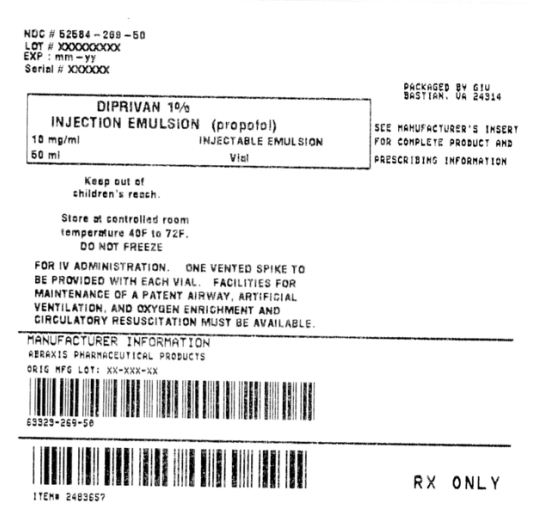Diprivan Injection, Emulsion while Breastfeeding

What is Diprivan Injection, Emulsion used for?
I am breastfeeding mother and I am using Diprivan Injection, Emulsion. Can it have any bad effect on my kid? Shall I search for better alternative?

Diprivan Injection, Emulsion Breastfeeding Analsys
Propofol while Breastfeeding
SafeCAS Number: 2078-54-8
Because of a high protein-binding capacity and a high volume of distribution, excretion into the breast milk is non-significant. No side-effects were observed in breastfed infants of mothers who were administered this medication. The nursing mother may breastfeed the baby as soon as she is recovered from anesthesia. A transient increase in Prolactin plasma levels has been observed with Propofol anesthesia. A case of green-bluish discoloration of the milk has been reported after administration of Propofol plus other drugs. Authorized medication for use in infants older than 1 month.
Diprivan Injection, Emulsion Breastfeeding Analsys - 2
Propofol while Breastfeeding
CAS Number: 2078-54-8
Amounts of propofol in milk are very small and are not expected to be absorbed by the infant. Although one expert panel recommends withholding nursing for an unspecified time after propofol administration,[1] most recommend that breastfeeding can be resumed as soon as the mother has recovered sufficiently from general anesthesia to nurse and that discarding milk is unnecessary.[2][3][4] When a combination of anesthetic agents is used for a procedure, follow the recommendations for the most problematic medication used during the procedure. General anesthesia for cesarean section using propofol as a component for induction may delay the onset of lactation. In one study, breastfeeding before general anesthesia induction reduced requirements of propofol and sevoflurane compared to those of nursing mothers whose breastfeeding was withheld or nonnursing women.[5] In one case, milk was noted to be green in color 8 hours after a procedure in which propofol was administered; however, several other medications were also used during the procedure.
I am nursing mother and I have already used Diprivan Injection, Emulsion, what should I do?
It is always a good idea to keep your healthcare provider or doctor informed about your drug usage during pregnancy and breastfeeding but if you have not informed your doctor about Diprivan Injection, Emulsion and have used it then do not panic as Diprivan Injection, Emulsion is mostly safe in breastfeeding and should not cause any harm to your baby.
I am nursing mother and my doctor has suggested me to use Diprivan Injection, Emulsion, is it safe?
Usage of Diprivan Injection, Emulsion is safe for nursing mothers and baby, No worries.
If I am using Diprivan Injection, Emulsion, will my baby need extra monitoring?
No
Who can I talk to if I have questions about usage of Diprivan Injection, Emulsion in breastfeeding?
US
National Womens Health and Breastfeeding Helpline: 800-994-9662 (TDD 888-220-5446) 9 a.m. and 6 p.m. ET, Monday through Friday
UK
National Breastfeeding Helpline: 0300-100-0212 9.30am to 9.30pm, daily
Association of Breastfeeding Mothers: 0300-330-5453
La Leche League: 0345-120-2918
The Breastfeeding Network supporter line in Bengali and Sylheti: 0300-456-2421
National Childbirth Trust (NCT): 0300-330-0700
Australia
National Breastfeeding Helpline: 1800-686-268 24 hours a day, 7 days a week
Canada
Telehealth Ontario for breastfeeding: 1-866-797-0000 24 hours a day, 7 days a week
